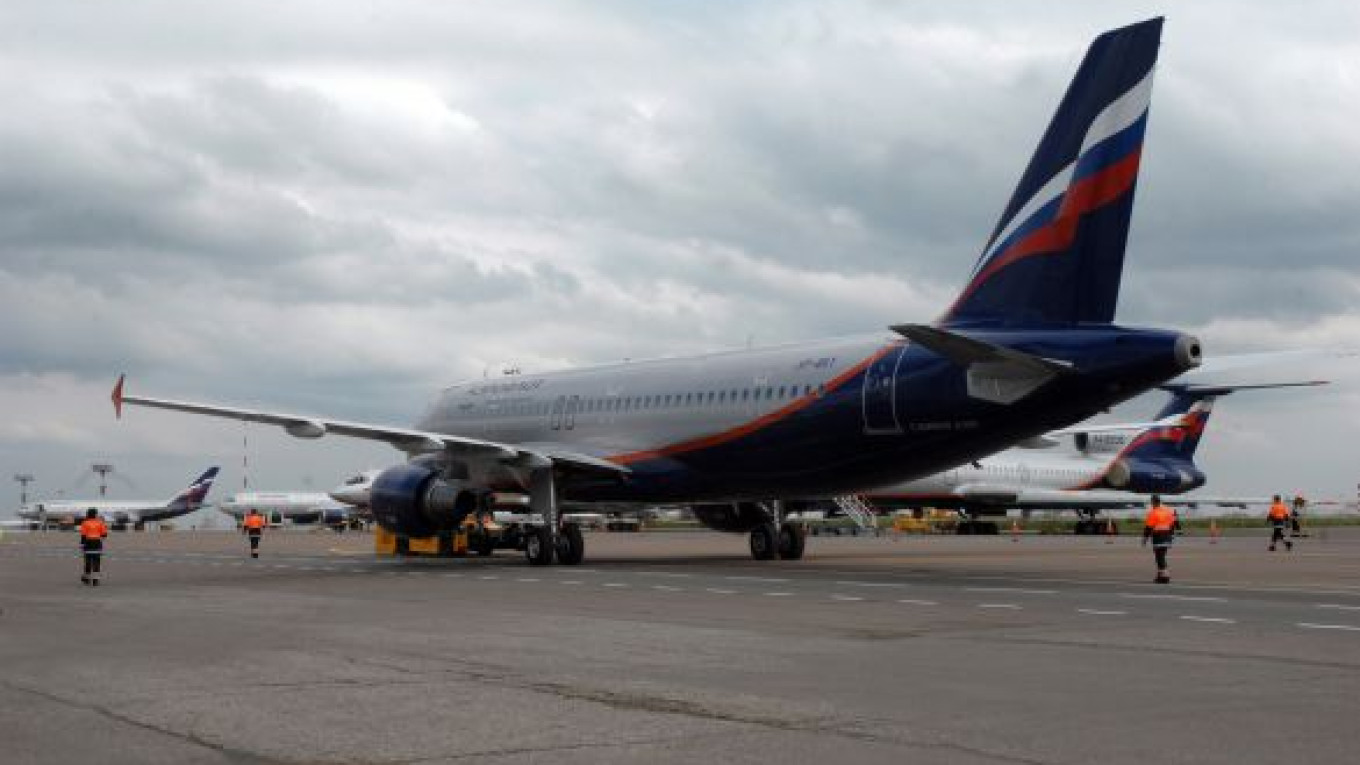Russian flag carrier Aeroflot suspended all flights to war-torn Syria on Monday, citing commercial considerations.
Aeroflot flights from the Syrian capital, Damascus, to its Moscow hub at Sheremetyevo Airport have been overbooked, while return flights have been practically empty, an unidentified Aeroflot spokesman told RIA-Novosti.
The carrier's decision came shortly before the news that Syria's prime minister Riyad Hijab had defected from President Bashar Assad's administration and joined the opposition.
Reuters reported that a statement in Hijab's name was broadcast Monday on Al Jazeera television, in which he said said he was defecting from "the killing and terrorist regime" and was joining "the ranks of the freedom and dignity revolution."
Russia's national airline was the only local airline offering direct flights to Syria, running two round-trip flights a week to Damascus in partnership with Syrian Air. From now on, Russians will have to stop over in airports including Dubai to reach Damascus.
As early as March, European airlines such as Air France started canceling flights to Damascus because of escalating violence between opposition rebels and government forces loyal to Assad. British Airways and Turkish Airlines, among others, followed suit in May.
UN officials estimate that more than 16,000 people have died since fighting erupted in March 2011. Observers say Syria is now in a full-blown civil war.
Along with fellow veto-wielding power China, Russia has blocked efforts to threaten the Syrian government with UN Security Council sanctions, saying it opposes outside intervention in the Middle Eastern country's internal affairs.
Russia's Foreign Ministry, however, urged citizens not to travel to Syria in a statement on its website in late July.
A Message from The Moscow Times:
Dear readers,
We are facing unprecedented challenges. Russia's Prosecutor General's Office has designated The Moscow Times as an "undesirable" organization, criminalizing our work and putting our staff at risk of prosecution. This follows our earlier unjust labeling as a "foreign agent."
These actions are direct attempts to silence independent journalism in Russia. The authorities claim our work "discredits the decisions of the Russian leadership." We see things differently: we strive to provide accurate, unbiased reporting on Russia.
We, the journalists of The Moscow Times, refuse to be silenced. But to continue our work, we need your help.
Your support, no matter how small, makes a world of difference. If you can, please support us monthly starting from just $2. It's quick to set up, and every contribution makes a significant impact.
By supporting The Moscow Times, you're defending open, independent journalism in the face of repression. Thank you for standing with us.
Remind me later.


